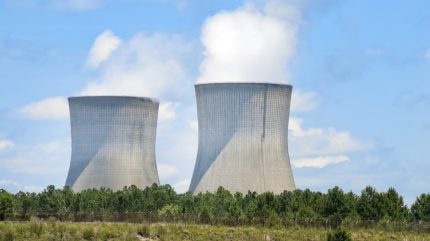
The White House has unveiled significant measures to bolster the development of new nuclear power plants in the US as it aims for a carbon-free power sector by 2035.
The Biden administration’s primary focus is on reducing the risks associated with large-scale nuclear projects.
It has announced the creation of a new power project management and delivery working group to identify and mitigate cost and schedule overrun risks.
Addressing such overruns is crucial for nuclear power plants. Plant Vogtle Units Three and Four in Georgia – the first US atomic reactors built in three decades – cost billions of dollars more and took years longer to construct than originally projected. They entered commercial operations in 2023 and 2024, respectively.
The working group will consist of experts from federal government entities, including the White House Office of Clean Energy Innovation and Implementation, the White House Office of Science and Technology Policy, and the Department of Energy (DoE).
It will engage with stakeholders including project developers, engineers, procurement and construction companies, utilities, investors, labour organisations, academics and non-governmental organisations.
The US Army has also indicated its intention to deploy advanced reactors, releasing a request for information to support a deployment programme for powering multiple army sites.
Small modular reactors and microreactors are being considered for their potential to provide resilient energy to defence installations and protect against threats.
The army’s initiative is expected to guide regulatory and supply chain pathways in the deployment of advanced nuclear technology across federal installations and critical infrastructure.
Nuclear power’s role in the US has been increasingly acknowledged, especially given its ability to provide uninterrupted carbon-free power amidst decarbonisation efforts and in the wake of rising electricity demand.
Recent policy developments have offered support to conventional reactors. One example is the funding for the life extension of California’s Diablo Canyon plant, which is being leveraged through DoE’s civil nuclear credit programme.
In Michigan, the Palisades plant is set to become the first US nuclear facility to restart operations after closure.
Holtec’s plans to reopen Palisades have been bolstered by a $1.5bn conditional loan commitment from the DoE.
The Inflation Reduction Act has created a production tax credit to aid existing nuclear plants in maintaining operations, and the Nuclear Regulatory Commission is also adapting and reforming its licensing and permitting processes to accommodate the efficient review of new reactor designs without compromising safety.
In 2023, nuclear power contributed to 19% of the total electricity generated in the US, with solar and wind contributing 4% and 10% respectively.



